Resources
Resilience research, partnerships, and solutions for today’s most pressing global challenges
Advancing Resilience Measurement Consultation Report
Over the last decade, resilience has continued to be elevated as an analytic, programmatic, and organizing concept in development discourse and practice. In line with this, approaches to measuring resilience have proliferated, giving rise to a nascent evidence base on both the impact of resilience programming and the sources of resilience that explain why some households, communities, systems, and countries fare better in the face of shocks and stresses than others.
Despite clear progress, significant challenges and gaps in resilience measurement and evidence remain. The demand for resilience evidence has also grown exponentially as conflict, Covid-19 and the accelerating impacts of climate change have reversed development gains on a massive scale and pushed hundreds of millions of people into crisis levels of poverty and hunger.
On May 17-18th, the University of Arizona, the Global Resilience Partnership, and the United States Agency for International Development convened a group of 50 experts and development practitioners at the University of Arizona, DC Center for Collaboration and Outreach in Washington, D.C. with the aim of advancing resilience measurement and setting a common agenda for addressing these challenges and gaps. The group of experts and development practitioners included representatives from USAID, the State Department’s Special Envoy for Climate, UN agencies, the World Bank, private foundations, universities and research institutions, NGOs, and governments and regional institutions, including the Government of Kenya and the Sahelian West Africa Permanent Committee for Drought Control.
USAID ResilienceLinks: Advancing Resilience Measurement
Arizona's Initiative for Resilience and International Development (AIRID) hosted the resilience measurement theme month for USAID's ResilienceLinks. Throughout the month a series of resources were shared regarding resilience measurement primarily focusing on four sub-themes: demand-driven resilience measurement, psychosocial resilience measurement, measuring the resilience of systems, and a resilience approach to measuring climate adaptation, including an "Expert's Take" interview by Greg Collins. The month concluded with a webinar discussion on Advancing Resilience Measurement: Principles and Priorities, moderated by Greg Collins, exploring the outcomes of the recent Advancing Resilience Measurement consultation co-convened by the University of Arizona, USAID and the Global Resilience Partnership.
For further information please visit the ResilienceLinks website and stay up to date with the ResilienceLinks network.
Watch the full webinar recording
In June 2023, the Global Resilience Partnership and USAID co-hosted the Resilience Evidence Forum (REF) with the University of Arizona's Initiative for Resilience and International Development (AIRID) being a key knowledge partner. This three-day event brought together a diverse array of participants both online and in-person in Cape Town, South Africa. The forum served as a platform for collectively taking stock of the latest resilience evidence available along with socializing the core principles and priorities for resilience measurement and evidence that emerged from the 2022 Advancing Resilience Measurement Consultation Report.
REF welcomed over 200 physical attendees and over 1000 virtual participants, including representatives from USAID headquarters and field offices, implementing partners, non-governmental organizations (NGOs), United Nations and international organizations, donors, government officials from Global South nations, universities, private sector entities, community-based organizations, and research institutions.
A comprehensive report has been crafted to encapsulate the key discussions and takeaways. The report underscores the pressing need to build upon our progress, recognize the various forms of evidence—be it scientific, local knowledge, indigenous knowledge, or conveyed through storytelling—and elevate resilience as a collective, paramount objective. It highlights the importance of scaling evidence-based solutions and identifies the vital role various stakeholders play in realizing this objective.
2023
The Arizona Initiative for Resilience and International Development (AIRID) and International Resilience Lab brought together researchers, faculty, staff and students for their annual Symposium on Resilience and International Development. The event featured speakers from USAID’s Chief of Staff for The President’s Emergency Plan for Adaptation and Resilience (PREPARE), TANGO International, several USAID agencies, Global Resilience Partnership, and the World Food Program where participants learned the pivotal role universities can play in advancing resilience and confronting today’s most pressing global challenges. As discussions unfolded, attendees had the opportunity to learn different ways to get involved in the broader AIRID network, identify funding opportunities and grow their professional networks.
VIEW EVENT PAGE FOR FURTHER DETAILs
Food system resilience measurement: principles, framework and caveats
Christophe Béné · Timothy R. Frankenberger · Suzanne Nelson · Mark Alexander Constas · Gregory Collins · Mark Langworthy · Karyn Fox
Stakeholder engagement in the co-production of knowledge for environmental decision-making
Do the type of impact and vulnerability dimension matter when assessing natural hazard vulnerability?
Beware the Rise of Models When They Are Wrong: A Look at Heat Vulnerability Modeling Through the Lens of Sensitivity (Short Paper)
Seda Salap-Ayca
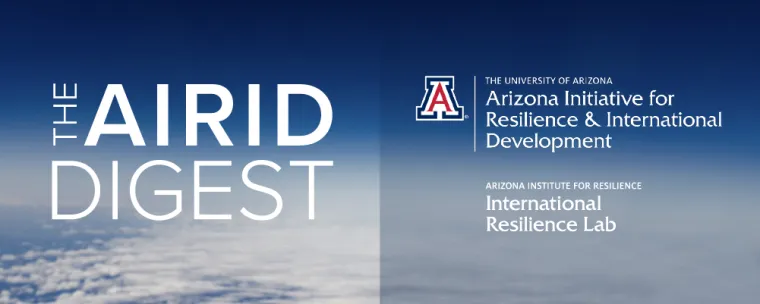
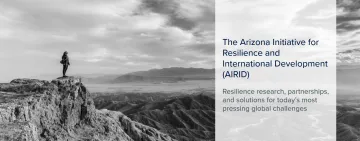
AIRID Digest, Issue 1
March 2023
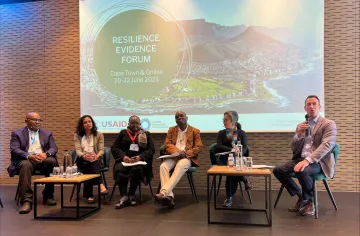
AIRID Digest, Issue 2
August 2023
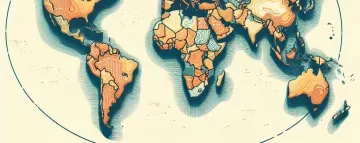
AIRID Digest, Issue 3
October 2023
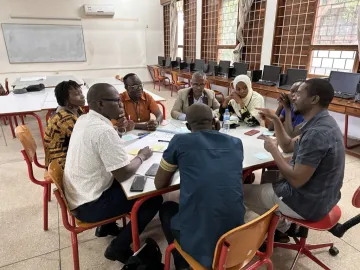
AIRID Digest, Issue 4
December 2023
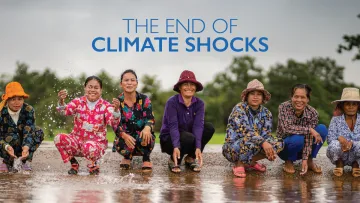
AIRID Digest, Issue 5
February 2024

AIRID Digest, Issue 6
April 2024

